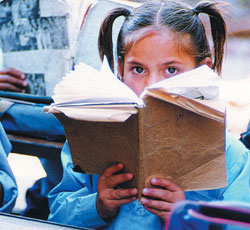|
|
Listening in on the conversations in the national media, we hear \'politics\' and \'New Nepal\' together all the time. What we don't hear about is \'imagination\'. This is not surprising. We view imagination as something that belongs to poets and artists, and we think of New Nepal as a project best left to our careerist politicians. But what if the New Nepal needed more imagination and less squabbling party politics?
In a New Yorker article about what distinguishes star performers from those who are competently good, writer Malcolm Gladwell reports that it is imagination which makes all the difference. The best eagerly discuss their mistakes without blaming others, and "have the ability to rethink everything that they've done and imagine how they might have done it differently".
Those who perform the best in every domain of human endeavour-the arts, research, sports, business, and politics-as very imaginative people. Yes, they are technically competent. But more than that, they are experts at forming clear pictures in their mind about what they want to accomplish, and how they want to go about achieving their goals. It's the interplay of that kind of imagination that's sadly lacking in our public conversations about the New Nepal.
Think, for instance, how at a time when urban Nepalis suffer through power blackouts for upto seven hours a day in this water-rich country, and rural Nepalis' dreams for better lives end in Malyasian chicken processing factories, our politicians continue to make a fool of themselves by parroting the line about turning Nepal into Switzerland.
What our netas never understand is this: Nepalis dont want a second-rate Switzerland or a duplicate Singapore when they can have a first-rate Nepal. Such a Nepal does not require that musical chairs be played by those who want to replace one self-proclaimed godman with their own parties' deities. But it does require a sense of contagiously shared imagination about transforming Nepal within a generation.
Imagine, then, providing primary education to every girl child in Nepal. The benefits from completing this goal alone far outweigh those from just about any other bikas work.
Imagine creating diverse institutional spaces that give decentralised national, regional, and local political access to any Nepali child of any caste and region in such a way that she can realistically dream of being the nation's chief executive someday.
Imagine connectivity as the new mantra, making us connect every village with other villages by roads, cable cars, ropeways, phone lines, and the internet.
Imagine letting diverse, transparent, and effective financial intermediaries flourish in such a way that Nepal's wealth is converted into usable capital not only for electricity, drinking water, highways, healthcare, and improvement of the arts, but also for insurance, so Nepalis' deaths do not remain cheap, anonymous, and routine.
Imagine measuring the government's performance by one primary indicator: the number of jobs it creates to keep the youth off the streets and in the workforce.
Imagine Nepal using its location between the world's two thriving economies to re-commit itself as the venue for tourism, education, and leisure in South Asia.
It's possible to imagine all this and more and then achieve it in the New Nepal only if we reframe what's ahead of us as an opportunity to transform 27 million lives in a country where the median age is just 17.




